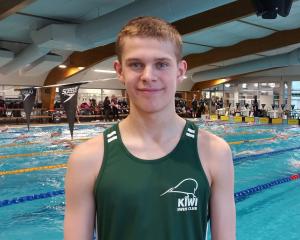This trend has continued at the London Games. The country has earned nine of its 10 medals - as of last night - on its backside.
Val Adams' shot put silver is the exception. Of the other candidates for gongs, Jo Aleh and Olivia Powrie will be sitting (or at least leaning) for the most part in the women's 470 sailing and Lisa Carrington will be anchored to her seat for the women's K1 200m kayak.
History reinforces the premise. Going into London, 47 of New Zealand's 90 Olympic medals came via a seated position or, in the case of 1968 prone smallbore rifle bronze medallist Ian Ballinger, lying on the ground.
That statistic now reads exactly 56% with 100 medals won.
Rowing, cycling, equestrian, kayaking and sailing have been the country's "go to" events when accumulating metal discs.
There is limited historical research as to why this has become the case. Pioneering New Zealand admired physical strength and endurance.
That made middle distance running a preferred method for earning medals. Jack Lovelock, Peter Snell, Marise Chamberlain, John Davies, Rod Dixon, Dick Quax, John Walker and now Nick Willis became household names compared to others who have climbed the podium more anonymously in 104 years of New Zealand Olympic history.
The values of working together sitting down and the united repression of pain also hold currency. Hence rowing has dominated New Zealand's medal count since Sydney 2000 under master coach Dick Tonks' Lydiard-like mantra that "miles make champions".
The current success adds another chapter to legendary forebears like the gold medal-winning eight of 1972 and coxed four of 1968.
Other examples include Sir Russell Coutts winning Olympic gold at the Los Angeles Games in the Finn class with boils on his backside, caused by the friction of prolonged voyages in salty sailing gear.
Sarah Ulmer's individual pursuit gold at Athens is also revered despite being seated.
She regularly saw stars and almost blacked out at the end of races.
Geography can mean athletes gravitate to seated sports. New Zealand's pastoral background means the skill of riding horses has always been sought.
The ability to helm boats on New Zealand's rivers, lakes and seas has been prized too, just as Nordic skiers or African middle-distance runners at altitude tend to excel in their respective Olympic events.












